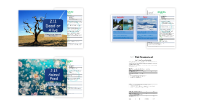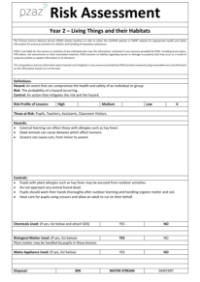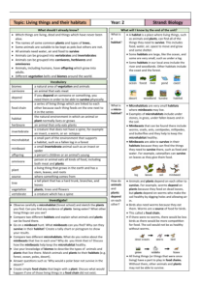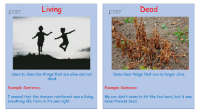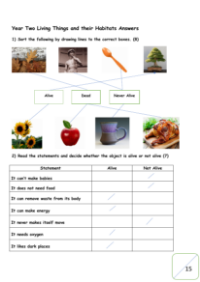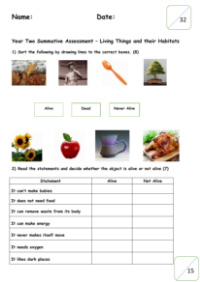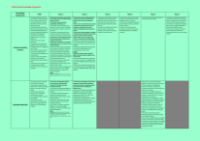Habitats - Habitats Vocab Assessment
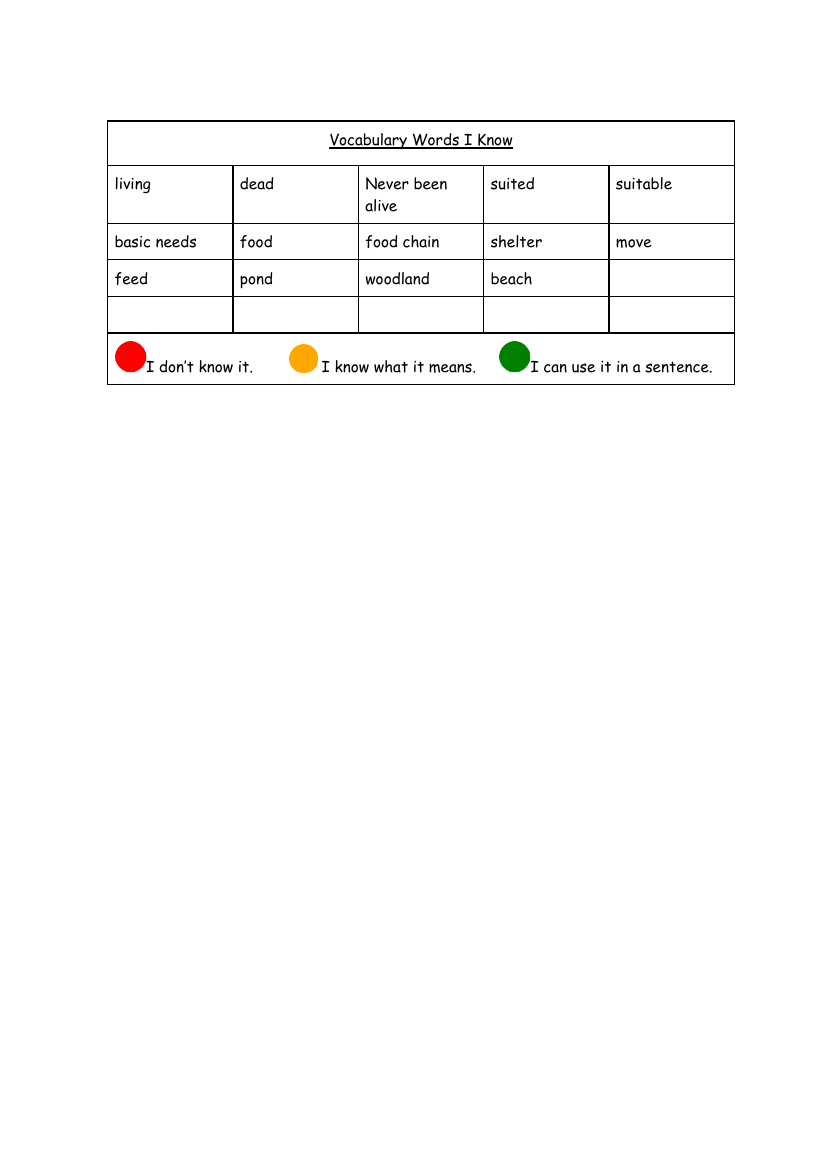
Science Resource Description
In a vocabulary assessment focused on habitats, students are presented with a range of terms related to the topic. The words are categorised to help children self-assess their understanding and usage of each term. The vocabulary list includes terms that describe the state of being such as 'living', 'dead', and 'never been alive', which are fundamental to understanding the nature of different organisms within a habitat. Additionally, words like 'suited' and 'suitable' are included to discuss how organisms are adapted to their environments.
The assessment also covers 'basic needs' that all living things require, such as 'food', 'shelter', and the ability to 'move'. These are linked to the concept of a 'food chain', a critical part of the ecosystem. Specific habitats like 'pond', 'woodland', and 'beach' are also part of the vocabulary list, providing context for where these terms might be applied. Students are encouraged to reflect on their knowledge by indicating whether they don't know the word, know what it means, or can use it in a sentence. This self-evaluation helps teachers gauge each student's comprehension and ability to apply the vocabulary in context, which is essential for a deeper understanding of habitats.

